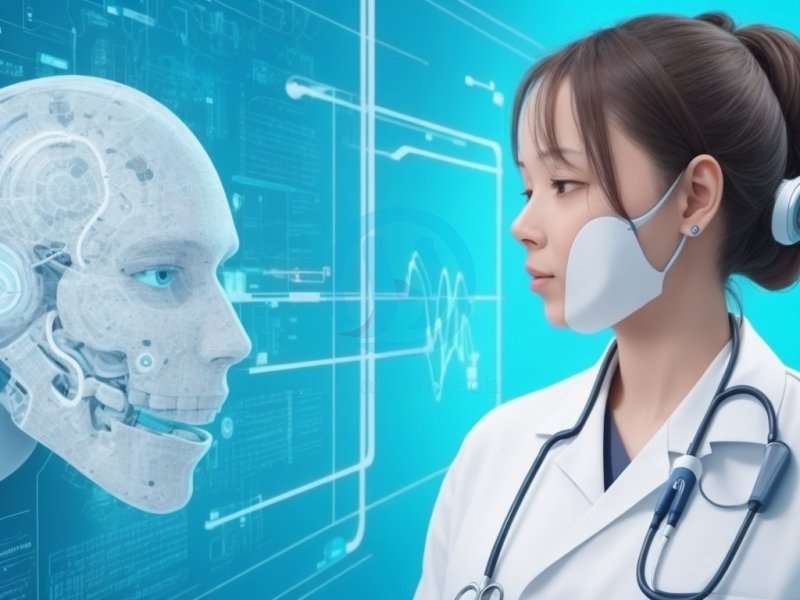
In the past few years, the healthcare industry has witnessed remarkable advancements driven by Artificial Intelligence (AI). As technology continues to evolve, AI is gradually reshaping the landscape of healthcare, particularly in diagnosis and treatment. From streamlining diagnostic processes to personalizing treatment plans, AI promises a brighter future for patients and medical professionals alike. In this blog, we delve into the cutting-edge applications of AI in healthcare and explore its potential to transform the way we approach healthcare.
Artificial Intelligence has found its way into various industries, and healthcare is no exception. AI-powered algorithms and machine learning models have opened up a world of possibilities in diagnosing and treating medical conditions. With the ability to analyze vast amounts of patient data, AI can detect patterns, identify correlations, and assist physicians in making more accurate and timely diagnoses. Gone are the days of relying solely on human expertise; now, doctors can harness the power of AI to enhance their decision-making process and improve patient outcomes.
One of the most significant contributions of AI in healthcare is its role in diagnostics. AI-powered medical imaging systems can process radiological images, such as X-rays, MRIs, and CT scans, with exceptional precision. Through deep learning algorithms, AI can detect subtle abnormalities that might go unnoticed by the human eye, aiding in early detection of diseases like cancer and neurological disorders. Consequently, early diagnosis can lead to more effective treatments, potentially saving countless lives.
Every patient is unique, and so are their medical conditions and responses to treatments. AI's ability to analyze massive datasets of patient information allows for the development of personalized treatment plans. By considering a patient's genetic makeup, lifestyle, medical history, and treatment responses, AI can suggest targeted therapies that offer higher chances of success. Personalized treatment plans not only improve patient outcomes but also minimize the risk of adverse reactions to medications and treatments.
AI-driven virtual health assistants have become increasingly popular in healthcare. These chatbots and voice-enabled applications provide patients with instant access to medical information and advice. Patients can ask questions, receive personalized health recommendations, and even schedule appointments without the need to physically visit a healthcare facility. Virtual health assistants reduce the burden on healthcare professionals, enhance patient engagement, and improve overall healthcare accessibility.
With the aid of AI, healthcare providers can harness the power of predictive analytics to anticipate health trends and potential outbreaks. By analyzing data from various sources, including social media, wearable devices, and electronic health records, AI can identify patterns and alert healthcare authorities to potential health threats. This proactive approach enables timely interventions, containment strategies, and resource allocation, effectively managing public health crises.
While AI's potential in healthcare is vast, it is essential to address ethical concerns and patient privacy. Healthcare organizations must prioritize data security, ensure transparent AI algorithms, and maintain patients' trust. Additionally, as AI takes on more significant roles in decision-making, it is crucial to strike the right balance between human expertise and AI's insights, maintaining human accountability for medical decisions.
AI in healthcare is not just a futuristic concept; it is a reality transforming the way we diagnose and treat medical conditions. From revolutionizing diagnostics through medical imaging to empowering patients with virtual health assistants, AI is making healthcare more accessible, efficient, and precise. As we navigate this exciting journey, it is vital to maintain ethical standards, prioritize patient privacy, and strike the right balance between human expertise and AI's insights. With continued research and responsible implementation, AI in healthcare promises a brighter, healthier future for all of us.
If you're looking to embrace the future of healthcare and stay at the forefront of medical innovation, harnessing the power of AI is undoubtedly the way to go. Let us know your thoughts and questions in the comments below. Together, let's embark on this transformative journey to reshape the healthcare landscape for the better.
Share This News